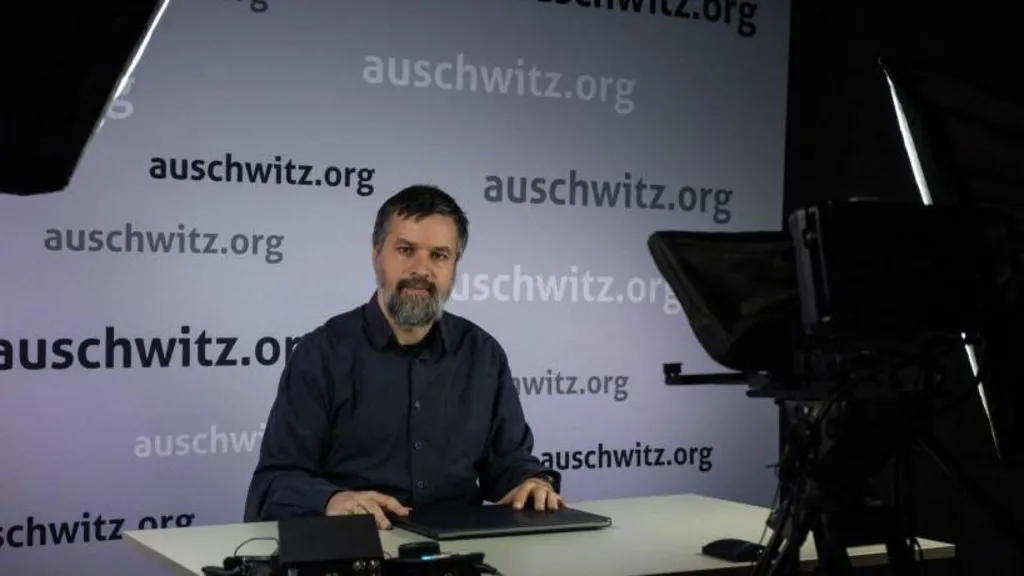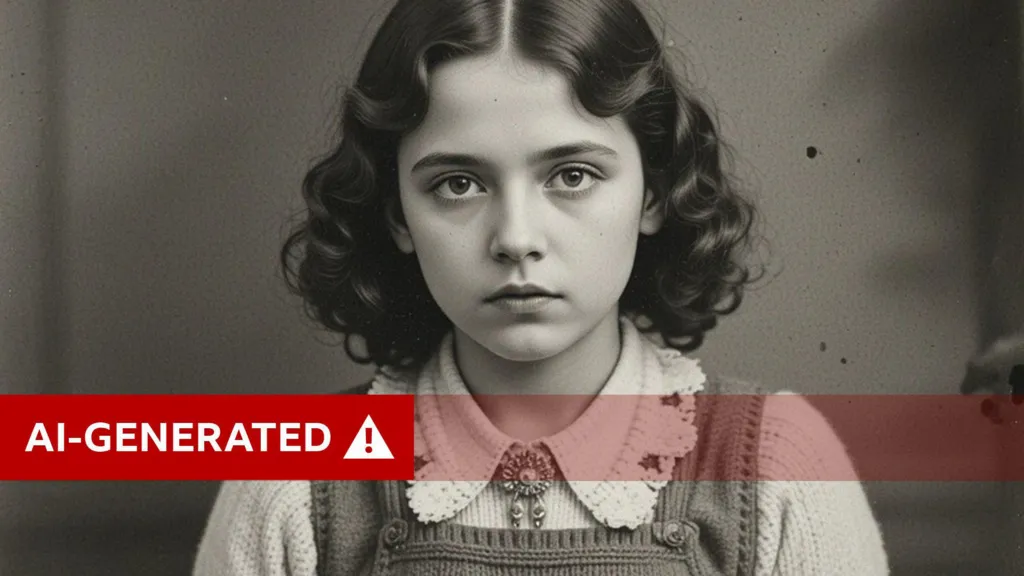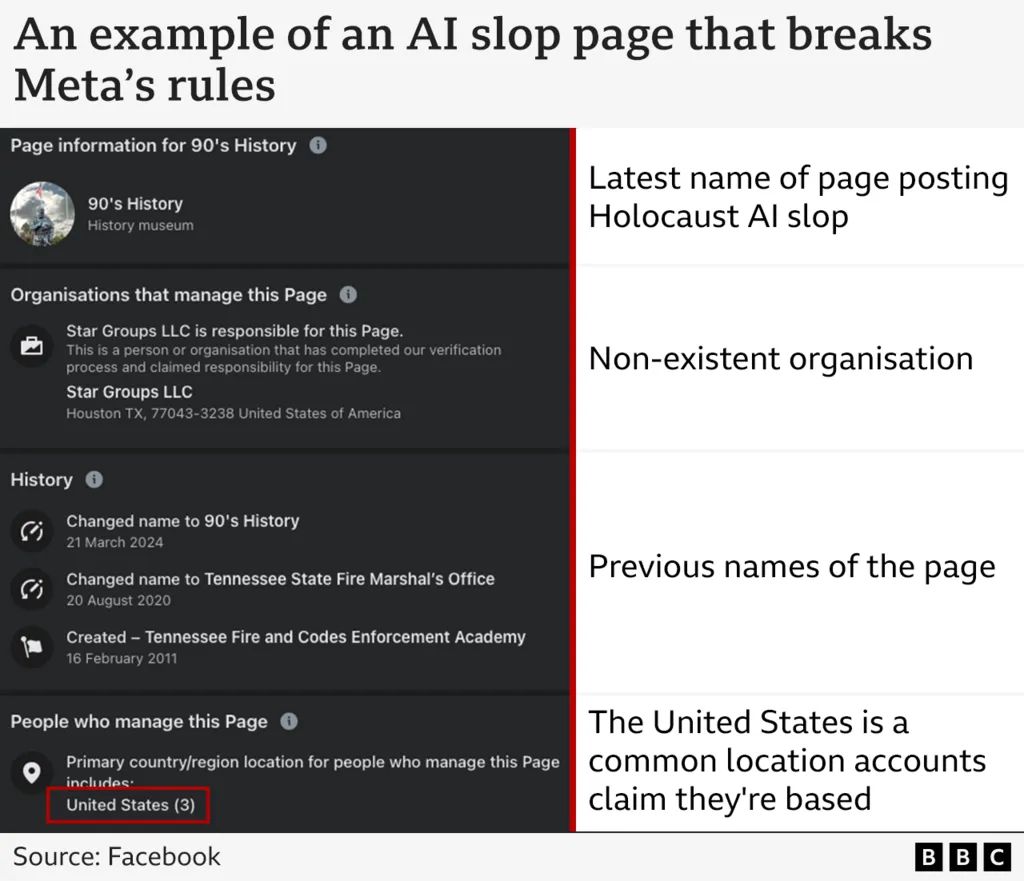Developer Offer
Try ImaginePro API with 50 Free Credits
Build and ship AI-powered visuals with Midjourney, Flux, and more — free credits refresh every month.
Spammers Exploit Holocaust History with AI for Facebook Profits
The Disturbing Rise of AI-Generated Holocaust Imagery
A BBC investigation has uncovered a troubling trend on Facebook: an international network of spammers is creating and disseminating AI-generated images of Holocaust victims to make a profit. This wave of low-quality, mass-produced content, often termed "AI slop," is causing significant distress to Holocaust survivors and their families.
Organizations dedicated to preserving the history of the Holocaust have condemned the practice, criticizing Facebook's parent company, Meta, for allowing the atrocity to be turned into what one expert calls an "emotional game." While there are very few genuine photographs from within the Auschwitz concentration camp, recent months have seen a surge of fake images. These AI creations depict fabricated scenes, such as a prisoner playing a violin or lovers meeting by a fence, which nonetheless attract tens of thousands of likes and shares.

Pawel Sawicki, a spokesperson for the Auschwitz Memorial in Poland, expressed his concern over the phenomenon. "Here we have somebody making up the stories… for some kind of strange emotional game that is happening on social media," he stated. "This is not a game. This is a real world, real suffering and real people that we want to and need to commemorate."
Uncovering the International Monetization Scheme
The BBC's investigation traced many of these images back to a network of content creators based primarily in Pakistan. These individuals are collaborating to exploit Meta's "invite-only" content monetization program, which pays users for creating high-performing content that generates significant views.
One account under the name Abdul Mughees, for example, posted screenshots claiming earnings of $20,000 from social media monetization schemes, including Meta's. Another post suggested the account had amassed over 1.2 billion views in just four months. The BBC could not independently verify these earnings, but the account frequently posted AI-generated photos of fictional Holocaust victims accompanied by fabricated stories, such as a child hiding under floorboards or a baby left on train tracks.
This network is not limited to one country; the investigation also found similar AI slop accounts operating from India, Vietnam, Thailand, and Nigeria.

The Human Cost of Fabricated History
The flood of fake images is actively undermining the work of historical institutions. In June, the Auschwitz Museum issued a warning that these accounts were not only stealing their posts but also using AI to warp historical details and invent entire narratives. The museum described the images as a "dangerous distortion" that "disrespects victims and harasses their memory."
Mr. Sawicki noted the real-world impact on their educational mission. "We already started getting comments on our Facebook posts that 'oh, this is an AI-generated photograph'," he said, highlighting how the fakes are eroding trust in authentic historical documents.

Dr. Robert Williams of the International Holocaust Remembrance Alliance confirmed the emotional toll on survivors. "They don't quite understand what they're seeing," he explained, adding that they feel a deep sadness that this is happening despite decades of educational efforts. "They feel like their efforts haven't been enough... That's a very sad thing to consider because the last of the survivors will soon leave us."
How the Spam Network Operates
To understand the motivation, the BBC spoke with Fazal Rahman, a Pakistani content creator involved in monetization schemes. While he denies creating Holocaust content himself, he operates within the same online circles. Rahman explained that a Facebook page with 300,000 followers could earn $1,000 a month by targeting higher-value audiences in the UK, US, and Europe, whose views are worth up to eight times more than those from Asia. History, he said, is a reliable topic for driving traffic.
Creators in these networks share instructional videos on how to use AI models to mass-produce fake history content. In one such video, an AI chatbot even suggested the Holocaust as a potential topic. A key tactic involves deception: pages often impersonate other entities—such as US fire departments, businesses, or influencers—to quickly build an audience. Once they become eligible for monetization, they pivot to posting AI slop. These established pages are also sold or rented to new creators.

Meta's Response and the Broader Implications
When presented with the findings, Meta removed several of the profiles, pages, and groups identified by the BBC, including those previously flagged by the Auschwitz Memorial. A spokesperson stated that while the fake images did not violate its content policies, the accounts were removed for breaking rules on spam, impersonation, and inauthentic behavior.
While AI has been used positively to commemorate the Holocaust, Dr. Williams warns of the danger of manipulation. He fears that the proliferation of fake imagery contributes to a sense that Holocaust history is somehow fabricated. "Any form of extreme manipulation is something that we should shy away from," he cautioned.
Compare Plans & Pricing
Find the plan that matches your workload and unlock full access to ImaginePro.
| Plan | Price | Highlights |
|---|---|---|
| Standard | $8 / month |
|
| Premium | $20 / month |
|
Need custom terms? Talk to us to tailor credits, rate limits, or deployment options.
View All Pricing Details

